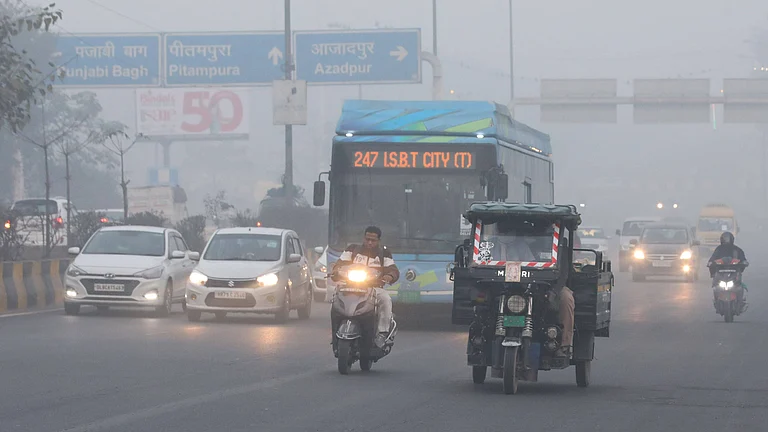A panel of the Union Environment Ministry has said that site visits should be conducted "in toto" before granting environmental clearances to pumped storage projects (PSPs) in the ecologically sensitive Western Ghats.
During a meeting of the ministry's Expert Appraisal Committee (EAC) on September 27, the member secretary stated that the ministry had granted Terms of Reference (ToR) -- which outlines the environmental studies a project must complete before applying for clearance -- to approximately 15 projects in the Western Ghats. "The EAC reviewed the Terms of Reference recommended to the PSPs proposed to be located in Western Ghats... Given the region's high environmental sensitivity, the EAC, in previous meetings, recommended site visits by sub-committee members to several pumped storage projects.
"These projects are located in the ecologically fragile Western Ghats and a huge forest area is also involved. The EAC emphasised that, prior to granting environmental clearance or making any recommendations, all pumped storage projects in Western Ghats that have been granted ToR by the ministry, a site visit shall be carried in toto wherever possible," read the minutes published on Thursday.
The Western Ghats, like the Himalayas, are among the most fragile regions in the country and are prone to illegal mining, unregulated construction, and uncontrolled commercial activities.
A pumped-storage project involves two reservoirs, one on top of a hill and another at the bottom. Excess electricity is used to pump water uphill to the upper reservoir. When electricity demand spikes, the water is released to the lower reservoir through a turbine, generating power. This system is particularly significant given the unpredictable nature of solar and wind energy.
In 2010, the Centre formed the Western Ghats Ecology Expert Panel under ecologist Madhav Gadgil to study the impact of population pressure, climate change, and development activities on the Western Ghats.
The panel recommended in 2011 that the entire hill range be declared an Ecologically Sensitive Area (ESA) and divided into three Ecologically Sensitive Zones (ESZ 1, 2, and 3) based on their environmental sensitivity. It also recommended a ban on mining, quarrying, new thermal power plants, hydropower projects, and large-scale wind energy projects in ESZ 1.
However, these recommendations faced opposition from state governments, industries, and local communities.
UNESCO declared the Western Ghats a World Heritage Site in July 2012 and in 2013, the Centre formed a High-Level Working Group led by rocket scientist K Kasturirangan to propose measures for the ecological protection and sustainable development of the region.
This group identified 37 percent of the Western Ghats, covering 59,940 square kilometers, as ecologically sensitive.
Since March 2014, the Union Environment Ministry has issued six draft notifications to declare the Western Ghats as ecologically sensitive, but the final notification is still pending due to objections from the states.
An expert panel, established in April 2022 under former Director General of Forests Sanjay Kumar, is now working closely with the states to resolve the issue.
Following the recent devastating landslides in Kerala's Wayanad, sources in the environment ministry said that the Centre might notify eco-sensitive areas of the Western Ghats state by state.
After discussions with stakeholders, the panel realised that declaring the entire region as an eco-sensitive area at once may not be feasible. It would be more effective to notify the areas separately for each state, they said.
"Dense human habitations have developed in some areas, leading to law-and-order issues. So, we will continue consultations with states and notify the respective areas where consensus has been reached," a source said.
In the past three years, the Environment Ministry has issued 14 notifications covering 23 protected areas and 17 draft notifications to declare 32 protected areas as eco-sensitive zones, officials said.
The 60-day period for submitting objections and suggestions on the latest (sixth) draft notification to declare over 56,800 square kilometers of the Western Ghats across six states as ecologically sensitive areas ended on Monday.






























